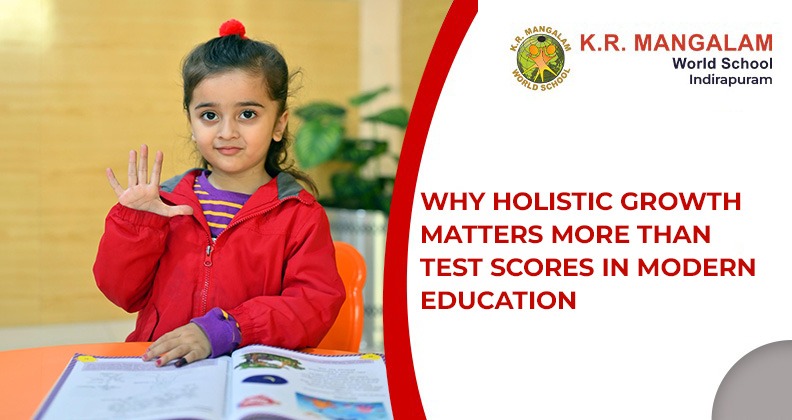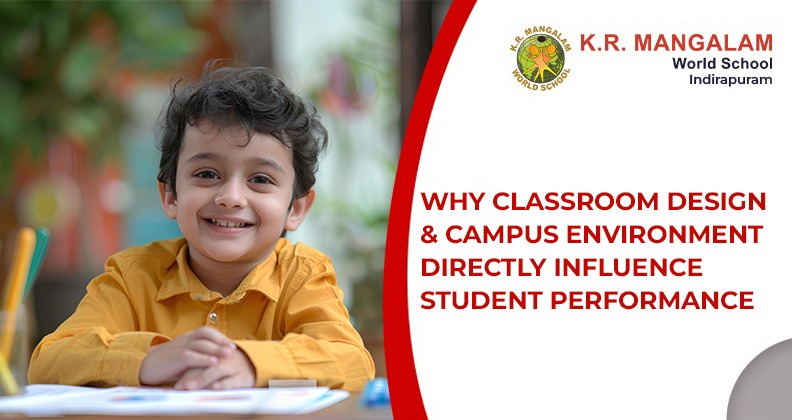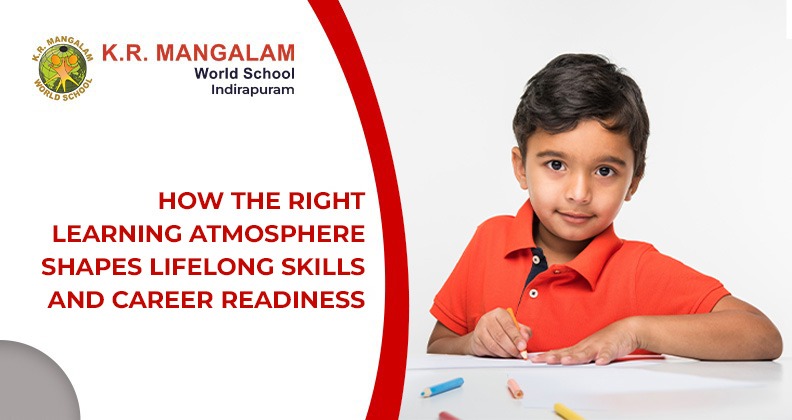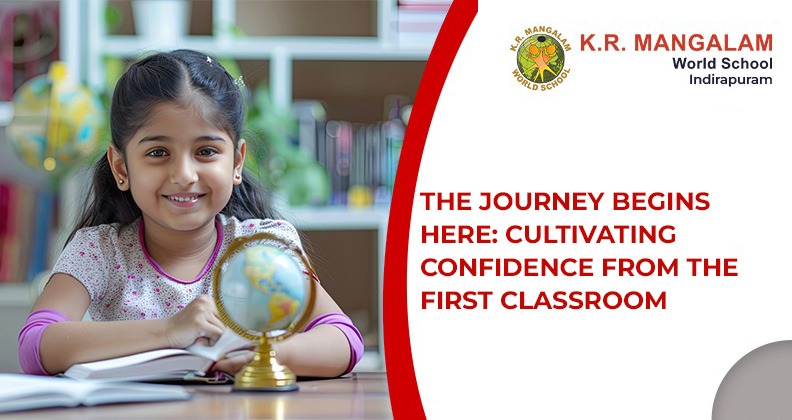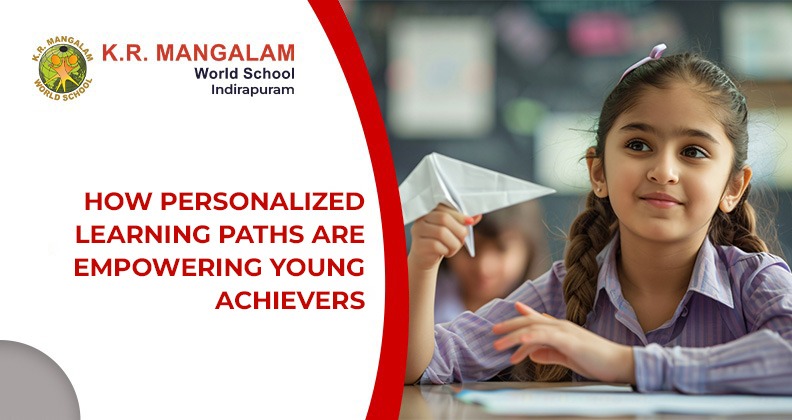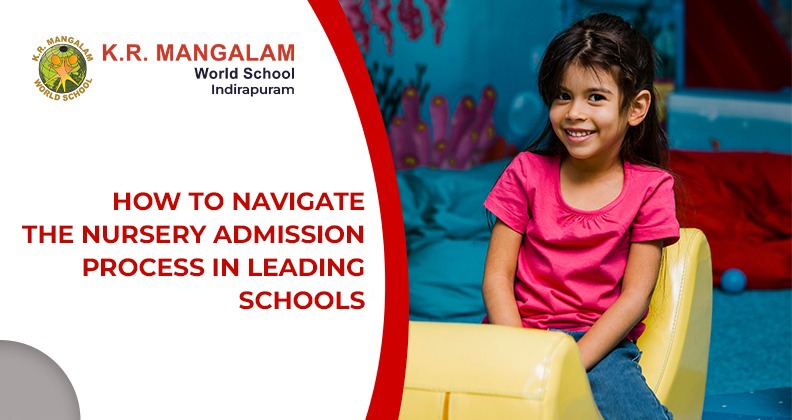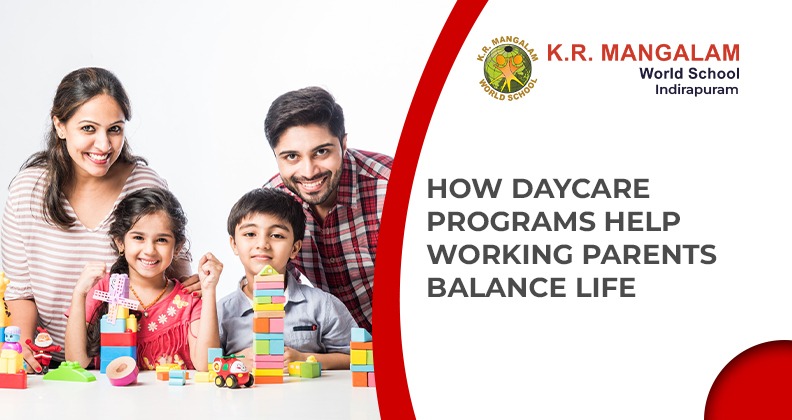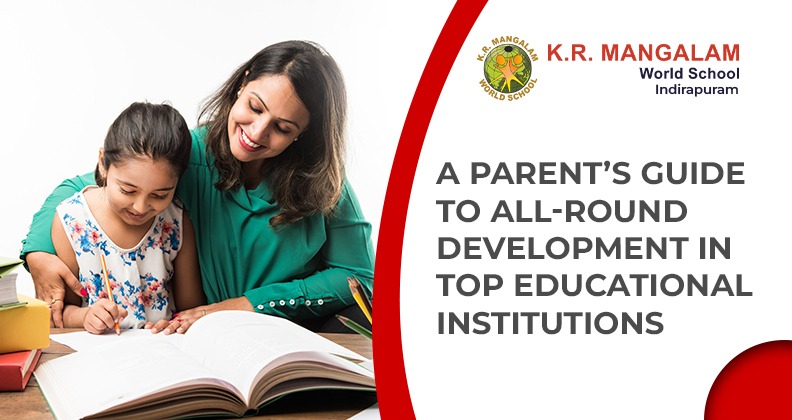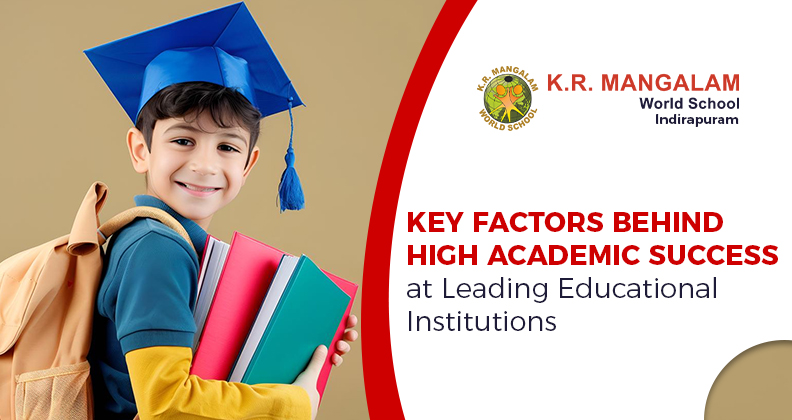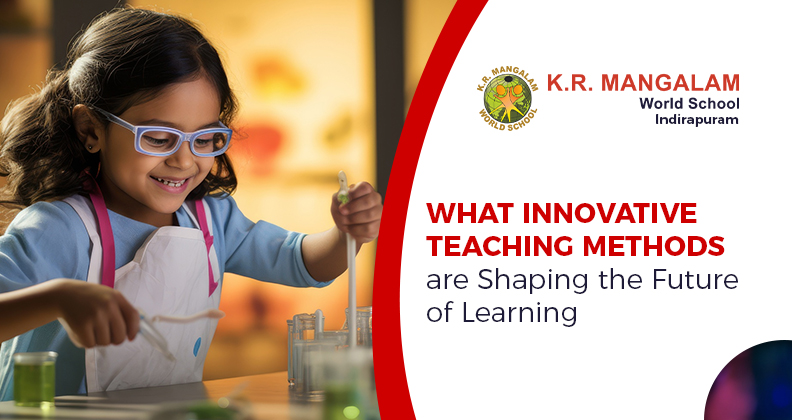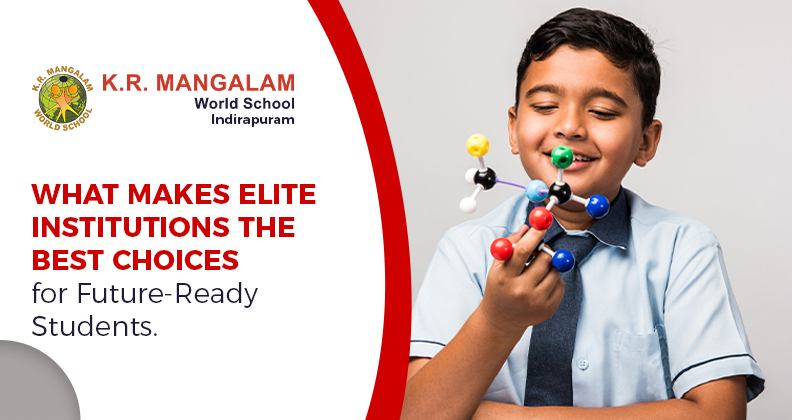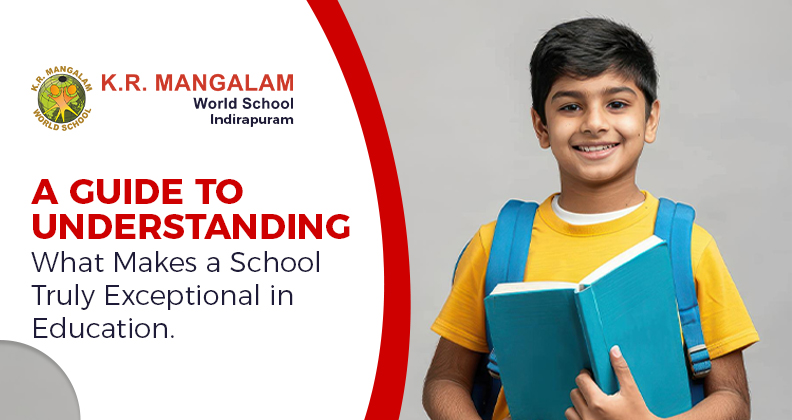Introduction:
In today’s fast-changing world, education can no longer be confined to textbooks, report cards, and exam results. At K.R. Mangalam Indirapuram, the Top CBSE Schools in Ghaziabad where the modern learner must be creative, adaptable, emotionally intelligent, and socially aware — qualities that cannot be measured through test scores alone. This is why holistic growth has become the new foundation of progressive education models across the country.
Institutions recognized among the CBSE schools are leading this change by creating environments where students can grow intellectually, emotionally, and ethically. These schools understand that a child’s success is not determined by numbers on a mark sheet but by how well they can think, feel, and contribute to society.
Holistic education nurtures every aspect of a learner’s personality — mind, body, and spirit. It empowers students to discover their potential, develop emotional balance, and face real-world challenges with confidence and empathy.
About Us:
At our institution, we believe that education goes well beyond exams — it’s about nurturing the whole child. Alongside a strong academic curriculum, we offer a broad spectrum of extracurricular options: robotics clubs, theatre workshops, music & dance ensembles, sports teams (football, basketball, athletics) and community‐service initiatives. Kids don’t just prepare for tests: they build confidence, discover passions and learn leadership through annual events like our Innovation Fair, Global Citizens Week, inter‐school sports meets and arts festivals. Our campus provides state-of-the-art labs, creative spaces and green zones to support this growth. Graduates leave not just with grades, but with character, adaptability and purpose. As a parent or educator, you’ll relish the sense of community, the purpose-driven learning and the joyful energy that defines this environment.
1. The Evolving Purpose of Education
Traditional schooling was once focused solely on academics — mastering facts, memorizing content, and performing well on tests. But today’s education is about life readiness. The best schools aim to prepare students not just for exams but for the future — one where creativity, collaboration, and emotional resilience will define success.
By promoting critical thinking and self-awareness, these schools help learners apply classroom knowledge to real-life situations. The goal is not just to produce high scorers, but to nurture responsible, confident, and compassionate individuals who can make a meaningful impact in their communities.
This broader vision is what sets apart institutions listed among the CBSE schools, as they redefine success through a balanced approach that values intellect and character equally.
2. Emotional Intelligence: The True Measure of Growth
While academic intelligence (IQ) helps children perform well in school, it’s emotional intelligence (EQ) that determines how they handle life. Emotional learning teaches students how to understand, express, and manage their emotions while empathizing with others.
Forward-thinking schools have integrated EQ development into their daily curriculum. Activities like mindfulness, group discussions, peer mentorship, and reflection journals are now common practices. These experiences help students build resilience, manage stress, and develop empathy — skills that are critical in every stage of life.
In fact, research consistently shows that students with higher EQ are more likely to excel academically, maintain better relationships, and lead happier lives. This reinforces the idea that true success comes from emotional strength, not just academic scores.
3. Moving Beyond Memorization: Critical Thinking and Creativity
One of the biggest shifts in modern education is the move away from rote learning. Instead of memorizing formulas or definitions, students are encouraged to ask questions, explore ideas, and find creative solutions.
Schools emphasizing holistic development use experiential and project-based learning methods. For instance, instead of only studying science theories, students might build working models or conduct field experiments. This helps them understand rather than just recall concepts.
This emphasis on analytical and creative thinking prepares students for future industries that value innovation — from AI and design to sustainability and social entrepreneurship. Such approaches reflect the teaching standards followed by the CBSE schools, where curiosity and creativity drive learning.
4. Physical Health: The Foundation of Mental Strength
Holistic growth also means balancing mental and physical well-being. A healthy body supports a sharp, alert mind — which is why physical education and sports are core components of progressive curriculums.
Through games, yoga, athletics, and fitness sessions, students learn discipline, teamwork, and perseverance. Participation in sports also builds leadership and time management skills while teaching respect for fair play and healthy competition.
Moreover, regular physical activity enhances focus and reduces stress, creating a positive cycle that improves academic performance. This balance between study and play ensures that children grow not only smarter but also stronger, more confident, and emotionally grounded.
5. The Power of Art, Music, and Self-Expression
A well-rounded education cannot exist without art, music, and creative expression. These forms of learning stimulate imagination, emotional depth, and cognitive development.
By engaging in music, dance, drama, or visual arts, students learn patience, attention to detail, and the power of storytelling. Such experiences help them communicate feelings and ideas that words alone cannot express.
The finest educational institutions understand this connection. Many among the CBSE schools have made art an integral part of their learning environment — proving that creativity is not an extracurricular luxury, but a core element of intellectual and emotional development.
6. Leadership and Teamwork Through Real-World Engagement
Holistic learning goes hand-in-hand with leadership development. True education teaches students to take initiative, collaborate with peers, and make decisions that impact their surroundings positively.
By participating in student councils, house systems, and social responsibility projects, learners gain first-hand experience in organizing, leading, and motivating others. These experiences cultivate self-confidence and prepare them for leadership roles in adulthood.
Moreover, collaboration-based assignments encourage teamwork — a skill crucial for success in modern workplaces. Students learn how to listen, negotiate, and find common ground, all while respecting diverse perspectives.
7. Technology: A Bridge to Smarter Learning
In the digital age, technology has become a powerful enabler of learning — but only when used wisely. Smart classrooms, digital labs, and interactive e-learning tools have revolutionized how students engage with knowledge.
Progressive schools integrate digital literacy into their teaching approach. Students learn how to research effectively, evaluate online information critically, and use technology for creative problem-solving rather than distraction.
By combining traditional learning with modern tools, schools prepare students to navigate an increasingly digital world responsibly. This future-ready approach aligns with the educational excellence that defines the CBSE schools.
8. Experiential Learning: Education Beyond the Classroom
The best lessons often happen outside textbooks. Experiential learning — through field trips, workshops, internships, and community service — helps students apply theoretical knowledge in real-life contexts.
When students participate in environmental drives, social campaigns, or business simulations, they develop a deeper understanding of how their education connects to the world around them. These experiences enhance their problem-solving abilities, adaptability, and confidence.
By making learning active and meaningful, schools ensure that education becomes a lifelong habit, not just a short-term goal.
9. Embracing Inclusivity and Diversity
Holistic education celebrates every learner’s individuality. It acknowledges that students have different strengths, learning styles, and cultural backgrounds — and that these differences should be embraced, not suppressed.
Inclusive classrooms ensure that every student feels valued and supported. Teachers use differentiated instruction and adaptive learning tools to help each child succeed at their own pace.
Such inclusivity promotes empathy and respect for diversity — values that prepare children to thrive in multicultural environments. Schools that champion diversity help students become global citizens who respect all voices and perspectives.
10. The Crucial Role of Parents in Holistic Development
Education doesn’t end when the school bell rings. Parents play a vital role in reinforcing holistic growth at home. The most effective schools build strong partnerships with families, creating a unified approach to a child’s development.
Regular parent-teacher meetings, collaborative events, and open communication channels allow parents to actively participate in their child’s learning journey. When families support curiosity, independence, and empathy, they amplify the positive outcomes of school-based education.
This teamwork between school and home creates a nurturing environment that accelerates emotional, intellectual, and moral development.
11. Life Skills and Ethical Learning
The future belongs to those who can think critically, act ethically, and adapt gracefully. Life skills education bridges the gap between academic learning and real-world challenges.
Schools committed to holistic education integrate practical life lessons such as problem-solving, financial literacy, decision-making, and time management into their curriculum. Alongside these, value education teaches honesty, respect, and compassion — essential traits for responsible citizenship.
This combination ensures that students not only achieve academic success but also grow into balanced individuals who can lead meaningful, purpose-driven lives.
12. Prioritizing Mental Health and Mindfulness
Mental health has become a key focus in education today. Excessive pressure to perform can affect students’ confidence and motivation. Recognizing this, progressive institutions have introduced wellness programs, counseling support, and mindfulness practices.
Meditation sessions, stress management workshops, and peer support initiatives help students maintain emotional stability and self-awareness. These tools teach them how to navigate challenges calmly and stay mentally strong under pressure.
By prioritizing mental well-being, schools ensure that learning remains joyful, not stressful — an environment where students flourish both academically and personally.
13. Global Perspective and Future Readiness
In a globalized world, learning cannot be limited by national boundaries. Schools with a holistic outlook expose students to international perspectives, cross-cultural exchanges, and collaborative projects with global institutions.
This international exposure broadens horizons and helps students appreciate diversity, sustainability, and global citizenship. They learn to approach challenges with empathy and innovation — qualities crucial for leadership in a connected world.
Educational excellence today is not defined by marks alone, but by how well a school prepares its students for a dynamic, borderless future.
14. Academic Excellence as a Byproduct of Holistic Growth
Ironically, when schools focus on overall development, academic excellence follows naturally. When students feel emotionally secure, physically active, and creatively engaged, their concentration and motivation levels increase.
Balanced learners tend to perform better because they enjoy learning — not because they fear exams. Their ability to connect ideas across subjects also enhances long-term understanding.
This is why holistic institutions consistently produce students who excel not only in academics but also in co-curricular achievements, leadership, and social impact.
15. The Future of Learning: Redefining Success
In the coming years, education will continue to evolve around skills like adaptability, empathy, and innovation. The workforce of tomorrow will value creators and collaborators more than test-takers.
By focusing on holistic growth today, schools are preparing students for careers that may not even exist yet — equipping them with the mindset to learn, unlearn, and relearn continuously.
The emphasis is shifting from “How much did you score?” to “How well can you think, lead, and care?” And that transformation marks the true future of education.
Conclusion:
The world no longer measures intelligence by report cards alone — it values emotional depth, ethical values, and problem-solving ability. At K.R. Mangalam Indirapuram, the Top 10 CBSE Schools in Ghaziabad where holistic growth empowers students to find balance between academics, creativity, and compassion.
Parents who aspire to give their children a truly future-ready education often look toward the CBSE schools, where learning is dynamic, inclusive, and centered on overall well-being.
Such institutions go beyond textbooks to prepare learners for life — shaping confident, curious, and kind individuals who will lead the world with empathy and excellence.
Holistic education isn’t about replacing academic success; it’s about redefining it. And in doing so, it creates not just achievers — but thoughtful, responsible, and inspired human beings ready to shape a brighter future.
FAQs:
Q. 1 What does holistic growth mean in modern education?
Ans : Holistic growth focuses on developing a child’s intellectual, emotional, social, and creative skills rather than just emphasizing academic results. It encourages students to become confident, empathetic, and adaptable individuals who can handle real-world challenges effectively.
Q. 2 Why is holistic growth more important than academic scores today?
Ans : In the rapidly evolving world, employers and universities value skills like teamwork, communication, and critical thinking. Focusing only on scores limits creativity, while holistic education helps students become independent thinkers and lifelong learners.
Q. 3 How can schools balance academics with overall development?
Ans : Top institutions integrate sports, art, community work, and leadership programs with academics. This balanced approach ensures that students perform well in exams while developing emotional intelligence and interpersonal skills.
Q. 4 How do teachers contribute to holistic learning?
Ans : Teachers act as mentors who guide students beyond textbooks—encouraging curiosity, moral values, and self-expression. Their personalized attention helps every child discover their potential.
Q. 5 What role do parents play in supporting holistic education?
Ans : Parents can nurture holistic development by encouraging extracurricular participation, open communication, and learning beyond the classroom. A home-school partnership strengthens overall growth.
Q. 6 How does holistic growth prepare students for future success?
Ans : It builds resilience, empathy, and adaptability—skills essential for leadership and global citizenship. Students who grow holistically become thoughtful, confident, and capable contributors to society.


